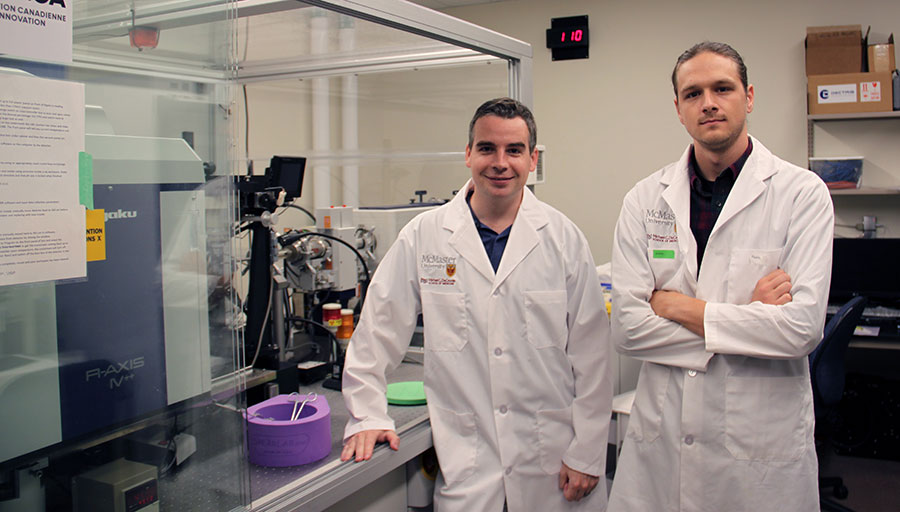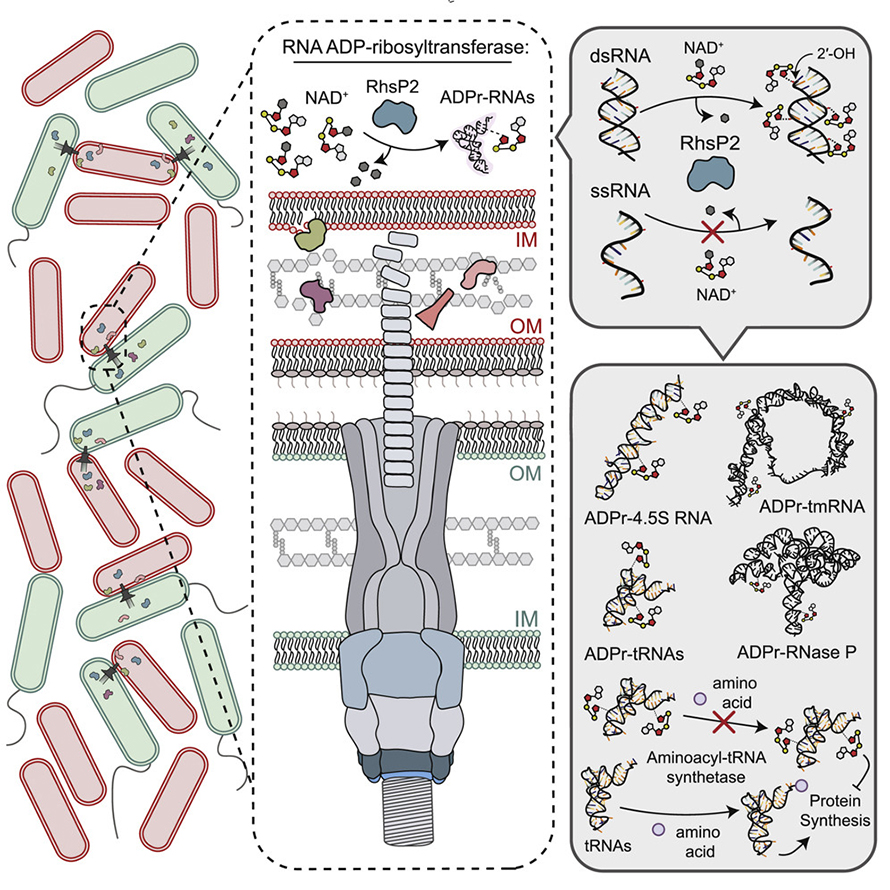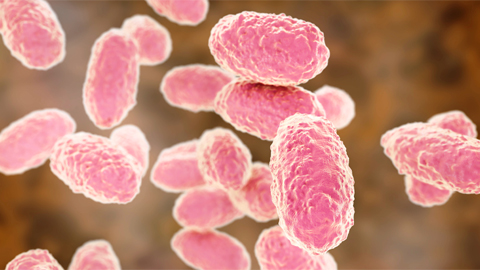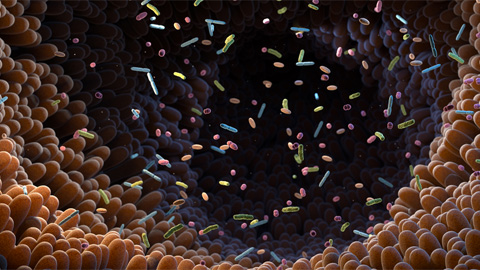Researchers discover toxin that kills bacteria in unprecedented ways
McMaster researchers have discovered a previously unknown bacteria-killing toxin that could pave the way for a new generation of antibiotics.
The study, led by John Whitney at the Michael G. DeGroote Institute for Infectious Disease Research, shows that the bacterial pathogen Pseudomonas aeruginosa, known to cause hospital-acquired infections such as pneumonia, secretes a toxin that has evolved to kill other species of bacteria.

For Whitney, the key aspect of his discovery is not just that this toxin kills bacteria, but how it does so.
“This research is significant, because it shows that the toxin targets essential RNA molecules of other bacteria, effectively rendering them non-functional,” says Whitney, an associate professor in the department of biochemistry and biomedical sciences.
“Like humans, bacteria require properly functioning RNA in order to live.”
First study author Nathan Bullen, a graduate student in biochemistry and biomedical sciences, describes it as “a total assault on the cell” because of the number of essential pathways depend on functional RNAs.
Whitney and Bullen, together with colleagues at Imperial College London and the University of Manitoba, have studied this toxin for nearly three years to understand exactly how it functions at a molecular level.

The breakthrough, published in the journal Molecular Cell, was achieved by Bullen after rigorous experimentation on common targets of toxins, such as protein and DNA molecules, before eventually testing the toxin against RNA.
This discovery breaks well-established precedents set by protein-targeting toxins secreted by other bacteria, such as those that cause cholera and diphtheria.
Researchers say that this development holds great potential for future research that could eventually lead to new innovations that combat infection-causing bacteria.
Whitney says future antibiotic development can build on the newly discovered vulnerability.
This article was republished with permission from the Institute for Infectious Disease Research at McMaster University. Read the original.
Enjoy reading ASBMB Today?
Become a member to receive the print edition four times a year and the digital edition monthly.
Learn moreGet the latest from ASBMB Today
Enter your email address, and we’ll send you a weekly email with recent articles, interviews and more.
Latest in Science
Science highlights or most popular articles

Meet Donita Brady
Donita Brady is an associate professor of cancer biology and an associate editor of the Journal of Biological Chemistry, who studies metalloallostery in cancer.

Glyco get-together exploring health and disease
Meet the co-chairs of the 2025 ASBMB meeting on O-GlcNAcylation to be held July 10–13, 2025, in Durham, North Carolina. Learn about the latest in the field and meet families affected by diseases associated with this pathway.

Targeting toxins to treat whooping cough
Scientists find that liver protein inhibits of pertussis toxin, offering a potential new treatment for bacterial respiratory disease. Read more about this recent study from the Journal of Biological Chemistry.

Elusive zebrafish enzyme in lipid secretion
Scientists discover that triacylglycerol synthesis enzyme drives lipoproteins secretion rather than lipid droplet storage. Read more about this recent study from the Journal of Biological Chemistry.

Scientists identify pan-cancer biomarkers
Researchers analyze protein and RNA data across 13 cancer types to find similarities that could improve cancer staging, prognosis and treatment strategies. Read about this recent article published in Molecular & Cellular Proteomics.

New mass spectrometry tool accurately identifies bacteria
Scientists develop a software tool to categorize microbe species and antibiotic resistance markers to aid clinical and environmental research. Read about this recent article published in Molecular & Cellular Proteomics.

